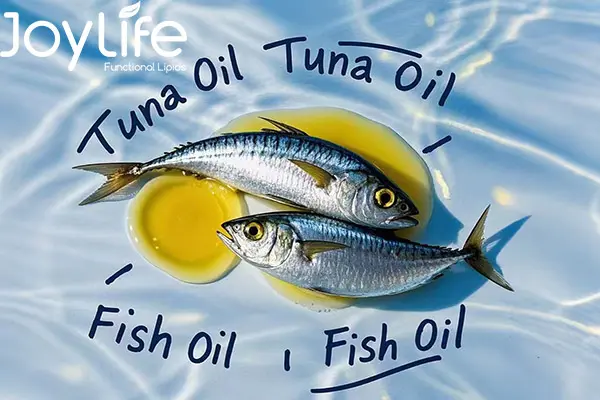



Is algae oil better than fish oil? Whats the difference between them?
DHA Algae oil and Fish oil are both popular sources of omega-3 fatty acids, particularly EPA (eicosapentaenoic acid) and DHA (docosahexaenoic acid), which are essential for heart, brain, and overall health.
However, they have distinct differences that may make one more suitable than the other depending on individual preferences, dietary restrictions, and health goals. Here's a comparison:
| Aspect | Algae Oil | Fish Oil |
| Source | Derived from marine algae (plant-based). | Extracted from fatty fish like salmon, mackerel, or sardines. |
| Omega-3 Content |
DHA
assay 40% to 80% EPA assay below 2.5% normally |
Total
Omega3 assay range from 30% to 95%; EPA and DHA assay can varying as request |
| Sustainability | More sustainable and eco-friendly; no overfishing required. | Less sustainable due to overfishing concerns. |
| Vegan/Vegetarian | Suitable for vegans and vegetarians. | Not suitable for vegans or vegetarians. |
| Taste & Odor | Generally neutral taste and odor. | Often has a fishy taste and odor. |
| Purity | Less likely to contain contaminants like mercury or PCBs. | May contain contaminants unless highly purified. |
| Cost | Typically more expensive due to production costs. | Generally more affordable and widely available. |
| Absorption | Equally effective in providing omega-3s. | Equally effective in providing omega-3s. |
| Environmental Impact | Low environmental impact; algae farming is sustainable. | Higher environmental impact due to fishing practices. |
| Health Benefits | Supports brain health, heart health, and eye health (high in DHA). | Supports heart health, brain health, and inflammation reduction (balanced EPA and DHA). |
| Allergen Risk | Hypoallergenic; no risk of fish allergies. | May trigger allergies in individuals sensitive to fish. |
Algae oil is a better choice for vegans/vegetarians, those concerned about sustainability, or individuals who want to avoid fishy taste and potential contaminants.
Fish oil is more cost-effective, widely available, and provides a balanced mix of EPA and DHA, making it a good option for those without dietary restrictions or allergies.
Both are excellent sources of omega-3s, so the choice depends on your dietary preferences, budget, and health goals.
If you have any demand on DHA algal oil, pls visit
https://www.joylifenutripharma.com/product/product-categories/dha-algae-oilpowder.html
For Fish oil Series, pls visit
https://www.joylifenutripharma.com/product/product-categories/omega-fish-oilpowder.html
Fresh stock for Natural made Omega3 Fish oil and omega fish oil powder, Joylife Nutripharma Inc
Thanks a lot for your reading!